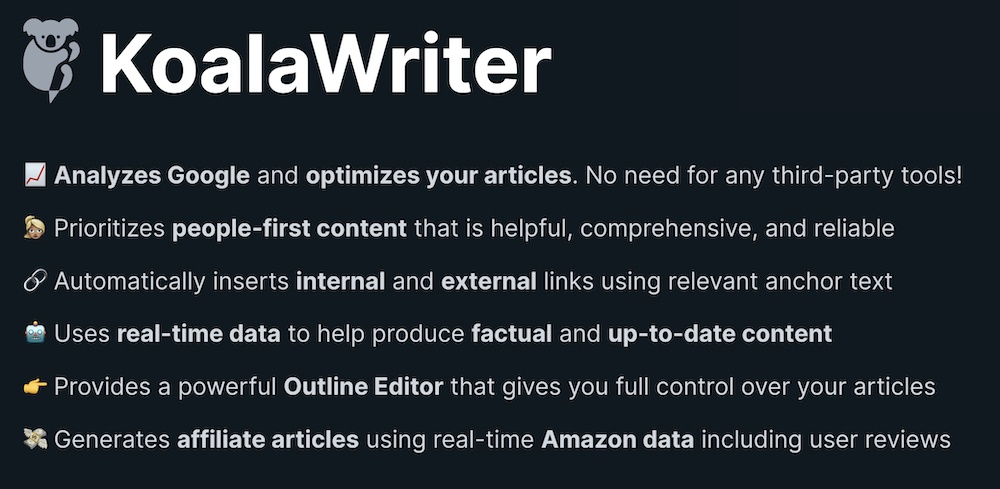The internet has opened a multitude of avenues for making money online while adhering to ethical and religious principles.
For those who want to ensure that their income complies with Islamic laws — that it is halal, or permissible — it’s important to understand which online business models meet these standards.
Not all money-making opportunities available on the internet align with these guidelines, so discernment is crucial.
Earning a halal income online involves more than just avoiding the prohibited industries. It includes a commitment to fairness, transparency, and providing genuine value.
Whether it’s through digital content creation, leveraging freelance platforms, or educating others through online tutoring and courses, opportunities are vast.
Moreover, with the continual growth of e-commerce, there are many halal market opportunities waiting to be tapped by savvy entrepreneurs.
For Muslims looking to invest and grow their wealth, halal stocks and cryptocurrency platforms also offer Shariah-compliant financial products.
TLDR/Key Takeaways:
- Halal online income is generated through ethical, transparent and valuable transactions.
- Opportunities for halal money-making include content creation, freelancing, and online education.
- Investment options like halal stocks and cryptocurrencies are available for financial growth.

Understanding Halal Online Business Models
When you’re looking into halal online business models, the key is to ensure that the income streams comply with Islamic finance principles.
This means your business should avoid interest, gambling, and economic activities involving pork or alcohol.
E-commerce
Ecom is one of the simplest ways you can start. By setting up an online store, you sell products that are ethical and sharia-compliant.
Think of platforms like Shopify that let you create a professional-looking store to showcase your halal products.
Subscription-based
Subscription-based services are also a great model, especially if you have content or products that users will continually need.
This could range from halal meal kits to educational resources on Islam.
Here’s a brief overview:
Freelancing: Offer your professional services online. Whether you’re a writer, developer, or consultant, platforms connect you with clients while you maintain a halal workflow.
Content Creation: Utilize platforms like YouTube for sharing valuable knowledge and insights while monetizing through halal ad revenues and sponsorships.
Remember, with any online business model, your intention (niyyah) should be to maintain integrity and provide value.
This commitment will serve you well as you navigate the digital economy while respecting your faith.
Identifying Halal Market Opportunities
When looking for ways to make money online while adhering to Islamic principles, it’s essential to pinpoint opportunities that are permissible (halal).
You’ll primarily want to focus on markets that are free from prohibited (haram) elements, like usurious transactions or unethical goods and services.
E-commerce and Dropshipping
E-commerce offers a straightforward approach to earning halal income by selling permissible goods online.
By setting up an online store, you can reach a broader market beyond your local area.
Consider utilizing dropshipping, where you sell products directly from the manufacturer to the customer without holding inventory, minimizing your overhead costs.
Finding reliable suppliers who produce quality halal items is key.
For example, an online store can specialize in halal-certified goods or modest fashion items, targeting a niche but growing market focused on ethical and Sharia-compliant products.
Digital Products and Services
Your skills and knowledge can translate into profitable digital products and services.
Freelancing platforms allow you to provide services like writing, design, or programming in a compliant manner; just ensure the projects you accept align with halal standards.
Develop digital products such as e-books, online courses, or software solutions that help others and generate income over time.
Specialty areas could include Islamic education, business coaching, or lifestyle advice — always ensuring the content is beneficial and appropriate.
Developing Halal Digital Content
Creating digital content aligned with Islamic principles can offer you a meaningful way to earn halal income online.
In this section, we explore key strategies for producing content that is both engaging and compliant with Islamic ethics.
Blogging
Choose Your Niche Carefully: Write about topics that you’re passionate about while ensuring they conform to halal standards. For example, you can focus on Islamic finance, modest fashion, or halal cooking recipes. To begin, set up a blog using platforms like WordPress or Blogger.
Monetization Strategies: Once your blog gains traffic, monetize it through halal ad networks, sponsorships with Islamic brands, or affiliate marketing. Stay away from promoting products or services that don’t align with Islamic values. I have a list of the best Muslim affiliate programs for you if you’re interested in the affiliate method.
Video Production
Halal Content is Key: When creating videos, ensure your topics are beneficial and do not contradict Islamic teachings. You could produce educational materials, halal cooking shows, or lifestyle content that celebrates Muslim culture.
Technical Aspects: Invest in good quality equipment for better production value, but start with what you can afford. Free editing tools like iMovie can help you polish your videos. Platforms like YouTube are ideal for sharing your content.
Podcasting
Podcast on Relevant Topics: Launch a podcast discussing issues relevant to the Muslim community, sharing inspiring stories, or educating on Islamic history and principles.
Engaging Format and Quality: Develop a consistent format for your episodes and ensure clear audio quality. Tools like Audacity can assist in editing your audio files, while hosting services like Podbean can distribute your podcast.
Leveraging Freelance Platforms
Making halal money online can be straightforward, especially when you tap into the flourishing world of freelance platforms.
These websites connect you with clients in need of your skills, allowing you to earn from virtually anywhere.
Writing and Translation
If you’ve got a way with words, freelance platforms are a goldmine for writing and translation jobs.
Offer your services for tasks such as article writing, blog posts, or translating documents.
Platforms like Hostinger enable you to monetize your blog through various means, which can be a stepping stone to your own writing service.
Web Development
Web development gigs are abundant, and your coding skills are in high demand.
You can find clients looking for everything from small website tweaks to full-scale web applications.
By leveraging sites tailored for developers, you can ensure your income is compliant with your values.
Graphic Design
Your artistic talent can shine through freelance work in graphic design.
Create logos, social media graphics, or branding kits for businesses. With platforms promoting creative services, you can forge connections that need your visual expertise.
Whether it’s minor edits or complete design overhauls, your design skills will become a vital asset to your clients.
You can also use AI to help you with this, but if you want to keep it halal, be sure you mention to your clients you do use AI to create designs for you.
Investing in Halal Stocks and Cryptocurrency

When you’re looking to invest in the stock market while adhering to Islamic finance principles, you’ll want to ensure your investments are halal.
Essentially, this means that the stocks you invest in should be compliant with Shariah law, avoiding businesses involved in activities like alcohol production, gambling, or conventional financial services based on interest.
To get started:
Do Your Research: Look for companies that qualify as halal, which means they engage in permissible business activities according to Islamic principles. Resources such as NerdWallet can help you understand what constitutes halal investing.
Utilize Apps: Consider using specialized apps like Zoya to filter stock options and verify their compliance with Shariah law.
With cryptocurrencies, the waters get a bit murkier.
Not all crypto assets are deemed halal, but generally, investing in cryptocurrency is permissible if the technology and use case of the project comply with Islamic ethics.
Here’s a quick checklist:
Assess the Project: Ensure the crypto project you’re interested in is ethical and provides a genuine service or product.
Halal Verification: Some platforms and scholars provide guidance on which cryptos are halal, as highlighted by the Islamic Finance Guru.
Remember to not just rely on labels but scrutinize the business models and sectors of any stock or crypto asset before investing.
Your diligence is crucial in making halal online investments.
Monetizing Social Media
When looking to make halal money online, social media can be a powerful platform.
You’ve probably seen influencers and content creators making it big, and you can too, by following halal practices.
First up, affiliate marketing is your go-to.
Promote products that align with Islamic values and earn a commission for every sale made through your link. For example, sharing links to modest clothing lines or halal food products can fit nicely into this category.
Here’s a quick look at potential avenues:
- Instagram & Facebook: Share posts with affiliate links, or use shoppable tags.
- Twitter: Tweet affiliate links with relevant hashtags to reach a broader audience.
Next, consider sponsored content. Brands pay you to create posts that showcase their products. It’s crucial to choose brands that align with Islamic principles.
- YouTube: Create videos reviewing halal products, or discussing Islamic topics, and include sponsored segments.
Lastly, advertising revenue from platforms like YouTube can also be considered if the content remains within Islamic guidelines.
- YouTube: Monetize your videos through the YouTube Partner Program, ensuring the ads displayed are halal-approved.
Remember, the key is to create content that reflects your values, builds trust with your audience, and complies with halal standards. Keep your content honest and engaging, and the opportunities to monetize should follow.
Online Tutoring & Courses
If you’re keen on sharing your knowledge or expertise, venturing into online tutoring and creating educational courses can be lucrative avenues for earning halal income.
Educational Content Creation
You have the opportunity to craft recorded video courses touching on various subjects, from academic disciplines to lifestyle skills.
By uploading these courses to platforms dedicated to e-learning, such as Udemy or Coursera, you can earn money every time a student enrolls.
Live Webinars
Alternatively, conducting live webinars and tutoring sessions is a direct way to engage with learners.
Utilizing tools like Zoom or Skype can help you interact with your audience in real-time, providing personalized learning experiences which often justify a higher premium for your services.
Creating Halal Apps and Software
Developing halal apps and software (like these) can be a lucrative avenue to earn money online while adhering to ethical guidelines.
If you’re a developer or aspiring entrepreneur, here’s how you can get started:
- Idea Generation: Brainstorm ideas that cater to the needs of the Muslim community. Your app could range anywhere from halal food locators, prayer time reminders, to Islamic education tools.
- Market Research:
- Identify your target audience.
- Assess demand through surveys and community feedback.
- Compliance:
- Ensure your app adheres to Islamic principles.
- Consult with religious scholars if necessary.
- Design & Development:
- Focus on user-friendly and inclusive design.
- Consider multiple platforms (iOS, Android, web).
- Monetization Strategy:
- Start with free downloads coupled with ads.
- Introduce premium features or subscription models for revenue.
- Launch & Promotion:
- Utilize social media and community forums to create buzz.
- Offer initial discounts or free trials to early adopters.
Remember to keep user privacy and data security a top priority throughout the process, as these are also crucial aspects of maintaining a halal business practice.
With dedication and a clear understanding of your audience’s needs, you can establish a successful venture in the halal digital market.
Frequently Asked Questions
Earning money online within the boundaries of Islam is straightforward when you know where to look.
Here are some common queries with direct answers to help you start earning halal income online.
What are some legitimate online jobs for students that align with Islamic principles?
For students seeking halal online jobs, consider freelancing in areas like writing, design, or programming. These platforms allow you to offer your services while adhering to Islamic guidelines.
Can you suggest ways to earn money from YouTube that are permissible in Islam?
Creating content that’s educational, inspirational, or positively entertaining can be a valid way for Muslims to earn from YouTube. Ensure your videos do not contain any prohibited content according to Islamic teachings.
Could you recommend apps for earning money that are considered halal for students?
Students can use apps that monetize skills such as language tutoring or graphic design. Mobile app development is another avenue, provided the content is ethical and complies with Islamic principles.
What practices should I avoid to ensure my online earnings are halal?
To keep your earnings halal, avoid businesses that deal with alcohol, gambling, and interest (usury). Transparency, fairness, and ethical practices are crucial for a halal online income.
How can I generate an income online without an initial investment while complying with halal guidelines?
Starting a blog or engaging in content marketing work from home are ways to earn without upfront capital. You can create valuable content and monetize it through various online channels.
What are some principles to keep in mind to make sure my online business adheres to Islamic laws?
Your online business should promote good and prevent harm, ensuring all transactions are clear and just. Avoid deceitful marketing, and make sure your products and services provide genuine value without infringing Islamic morals.
